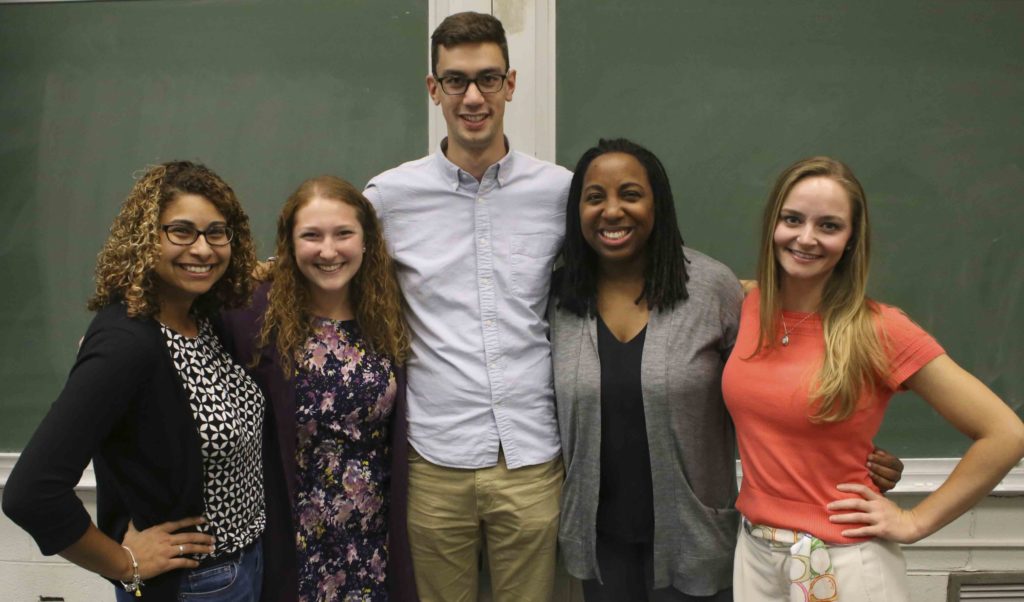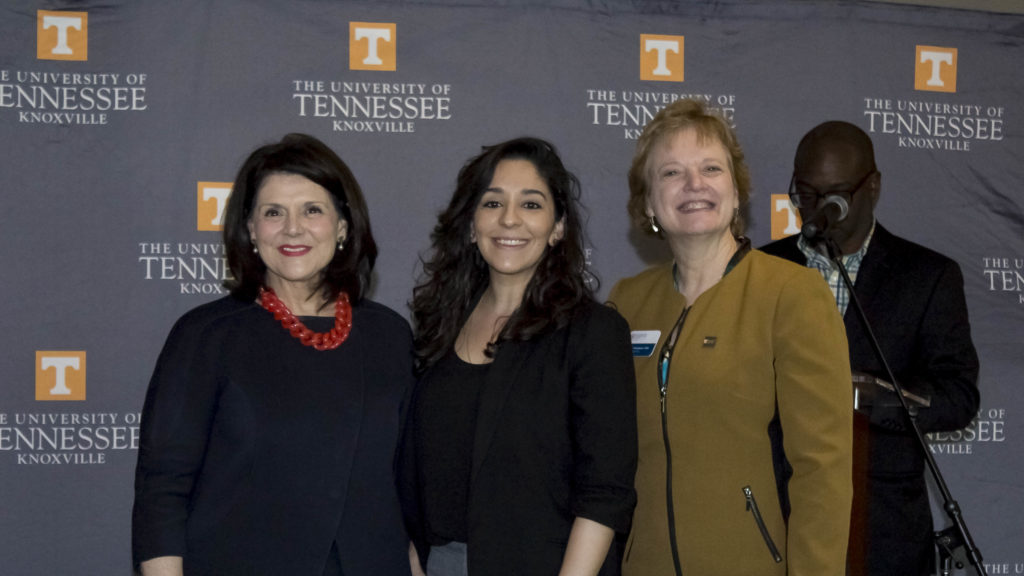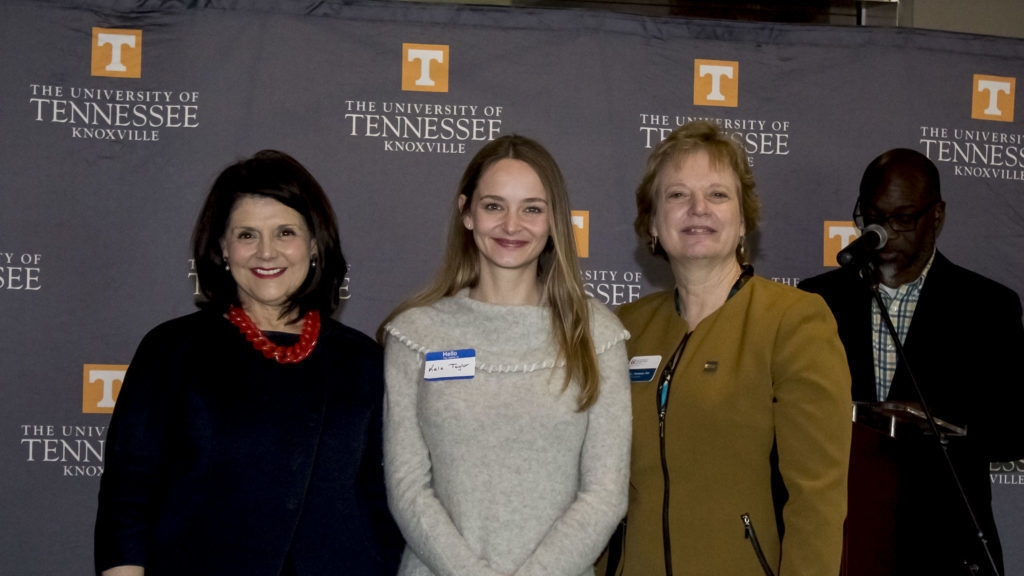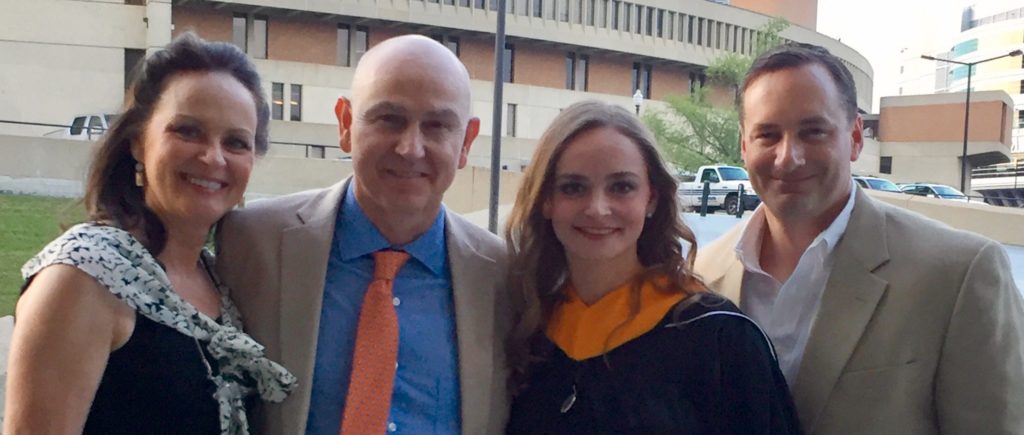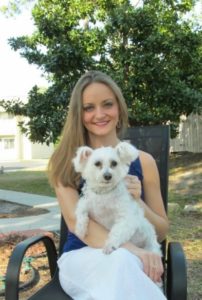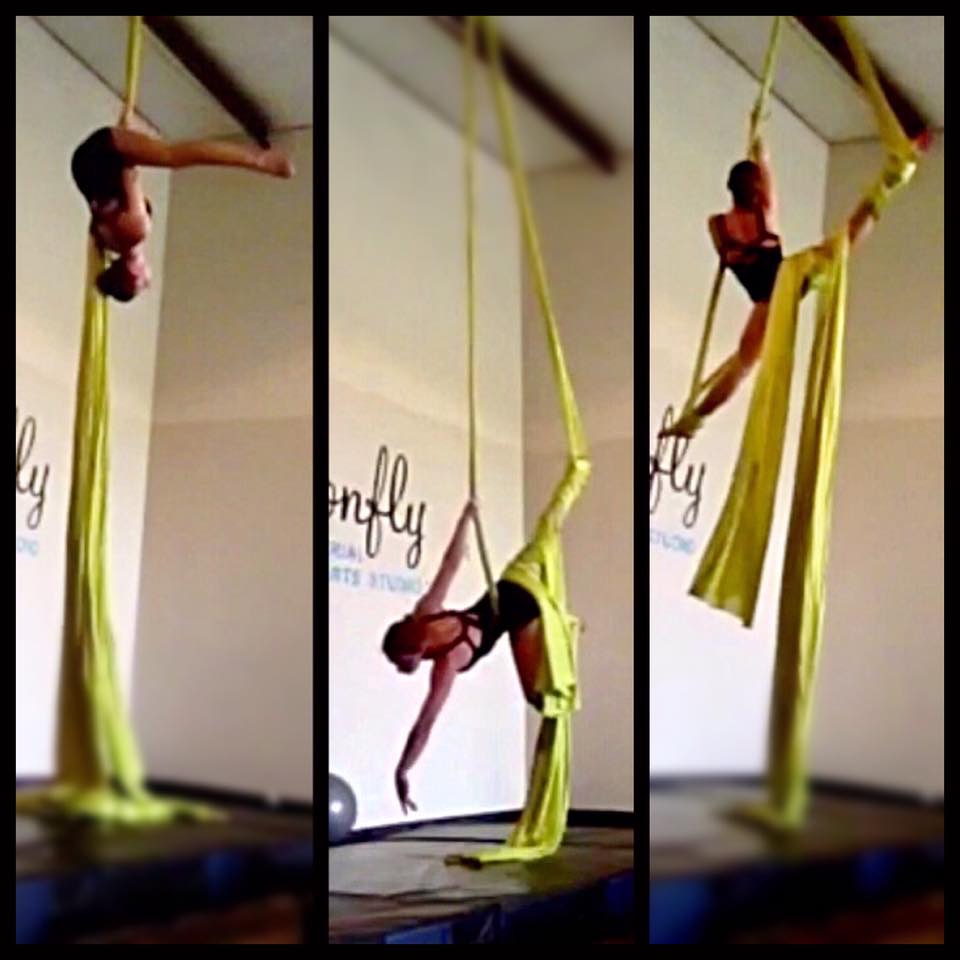Twenty-five members from Department of Educational Psychology and Counseling (EPC) were commended at the College of Education, Health, and Human Sciences (CEHHS) Faculty and Staff Recognition Ceremony on April 25, 2018.
To see photos from the event, please go to the “EPC at the 2019 CEHHS Faculty & Staff Recognition Ceremony” album on our EPC Facebook page.
Awards
Gary L. & Rebecca S. Blauser Endowed Faculty Support Award in Honor of Bob Rider, Dean
Awarded to recognize current and past accomplishments or future projects of one outstanding faculty member for excellence in teaching, research, and/or service efforts within any CEHHS area.
 Jennifer Ann Morrow
Jennifer Ann Morrow
Associate Professor in Evaluation, Statistics & Measurement
“What I love most about working at UT is I get to mentor an amazing, diverse group of graduate students as they become more proficient in research methodology. A profound thank you to Mr. and Mrs. Blauser for their support for this award in honor of Dean Rider. Thank you!”
Helen B. Watson Faculty/Student Award for Outstanding Doctoral Dissertation
Awarded to a student and the faculty member who directed the outstanding doctoral dissertation within the departments of Educational Leadership and Policy Studies; Educational Psychology and Counseling; Kinesiology, Recreation, and Sport Studies; or Theory and Practice in Teacher Education.
 Christopher H. Skinner
Christopher H. Skinner
Professor in School Psycholgy
“I value this award because it recognizes collaborative research efforts. I spend a great deal of time working with students to develop their research skills. My time spent with Kala was the best of times.
It is nice that the college acknowledges these efforts and I hope there is even more emphasis placed on faculty mentoring their students in research.
I am humbled and scared (“Can I keep up with their dreams and aspirations?”) – when students like Kala come to work with me. I hope that they keep coming and pray that I can keep up.”
 Kala Taylor
Kala Taylor
PhD Candidate in School Psychology
“I am honored to receive this award with Chris Skinner, professor, who has been my greatest academic advocate over the past five years. His dedication to mentoring me, writing with me, and teaching me has been invaluable to my career as a researcher and future psychologist. I am particularly delighted to receive recognition for this project, which is dear to my heart because of its potential to provide teachers with improved methods for presenting diverse learning material to their students.”
Recognition
Casey A. Barrio Minton
Professor & Program Coordinator for Clinical Mental Health Counseling
– Recognized under Presidents of National/International Professional Organizations for being President-Elect of Southern Association of Counselor Education & Supervision
– Recognized under Recipients of National/International Professional Awards for the American Counseling Association Fellow
Carolyn Blondin
Licensed Psychologist for the Korn Learning, Assessment & Social Skills Center
– Recognized under UT Faculty & Support Staff Service Awards for five years of service
Ralph G. Brockett
Professor in Adult Learning
– Recognized under UT Faculty & Support Staff Service Awards for 30 years of service
Beverly Cate
Accounting Specialist II
– Recognized under UT Faculty & Support Staff Service Awards for 25 years of service
Synthia Clark
Administrative Specialist I
– Recognized under UT Support Staff Awards & Certifications for the AECT Design & Development Competition Award
Lisa Crawford
Associate Director of the Center for Literacy, Education & Employment
– Recognized under Grants & Contracts Recipients as PI for the TDOE Summer Trainings, Tennessee Department of Education, $621,980
Stephanie Daniels
PhD Candidate in School Psychology
– Recognized under Grants & Contracts Recipients as PI for “Understanding students’ typing skills: Evaluating the effects and efficiency of a typing intervention for elementary school students,” Society for the Study of School Psychology, $5,000
David Fields
Program Manager/Event Manager of the Center for Literacy, Education & Employment
– Recognized under UT Faculty & Support Staff Service Awards for 10 years of service
Katherine H. Greenberg
Professor Emerita
– Recognized under Authors/Editors of Books & Assessments Published 2018-2019 for Greenberg, K. H., Sohn, B. K., Greenberg, N. B., Pollio, H. R., Thomas, S. P., & Smith, J. T. (2019). The phenomenological heart of teaching and learning: Theory, research, and practice in higher education. New York, NY: Routledge.
Aaron Kohring
Director of the Center for Literacy, Education & Employment
– Recognized under Grants & Contracts Recipients as Co-PI for the TDOE Summer Trainings, Tennessee Department of Education, $621,980
Robert Kronick
Professor & Director of University-Assisted Community Schools
– Recognized under Grants & Contracts Recipients as PI for the University-Assisted Community Schools, United Way of Greater Knoxville via Catholic Charities, $125,000 of anticipated $375,000
R. Steve McCallum
Professor in School Psychology
– Recognized under Editors/Co-Editors of Peer Reviewed Publication for being Co-Founder and Consulting Editor of the Journal of Psychoeducational Assessment
– Recognized under Authors/Editors of Books & Assessments Published 2018-2019 for Bracken, B. A., & McCallum, R. S. (2018). Universal nonverbal intelligence test. Austin, TX: ProEd Publishing Company
– Recognized under Authors/Editors of Books & Assessments Published 2018-2019 for McCallum, R. S., & Bracken, B. A. (2018). Universal talented and gifted screener (UTAGS). Austin, TX: Prufrock Publishing Company
Merilee McCurdy
Associate Department Head, Associate Professor & Program Coordinator for School Psychology
– Recognized under Grants & Contracts Recipients as PI for “Understanding students’ typing skills: Evaluating the effects and efficiency of a typing intervention for elementary school students,” Society for the Study of School Psychology, $5,000
Lauren Moret
Assistant Professor in Evaluation, Statistics & Measurement
– Recognized under 2019 Chancellor’s Honors Awards for Excellence in Teaching
Jennifer Ann Morrow
Associate Professor in Evaluation, Statistics & Measurement
– Recognized under 2019 Chancellor’s Honors Awards for Excellence in Advising
Louis Rocconi
Assistant Professor in Evaluation, Statistics & Measurement
– Recognized under Grants & Contracts Recipients as PI for “Measuring quality in legal education: Examining the relationship between law school rank and student engagement,” Association of Institutional Research, $50,000
Blaine Sample
Coordinator I of University-Assisted Community Schools
– Recognized under UT Faculty & Support Staff Service Awards for five years of service
Mike Sass
East TN Teaching Coordinator & Team Leader of the Center for Literacy, Education & Employment
– Recognized under 2018-2019 Faculty & Staff Retirements, 1996-2018
Gary J. Skolits
Associate Professor & Program Coordinator for Evaluation, Statistics & Measurement
– Recognized under Editors/Co-Editors of Peer Reviewed Publications for being Co-Editor of The Qualitative Review
Qi Sun
Associate Professor & Program Coordinator for Adult Learning
– Recognized under Editors/Co-Editors of Peer Reviewed Publications for being Co-Editor of Adult Education Quarterly
– Recognized under Recipients of National/International Professional Awards for the Outstanding Service Award by The American Association of Adult and Continuing Education
Christine Tidwell
Administrative Specialist III
– Recognized under UT Faculty & Support Staff Service Awards for 15 years of service
Connie White
Associate Director of the Center for Literacy, Education & Employment
– Recognized under 2018-2019 Faculty & Staff Retirements, 1990-2018
Brian Wilhoit
Director of the Korn Learning, Assessment & Social Skills Center
– Recognized under UT Faculty & Support Staff Service Awards for 10 years of service
